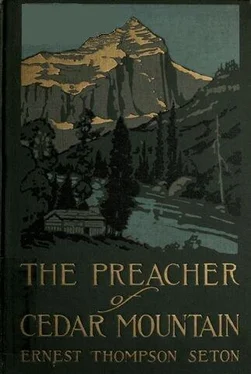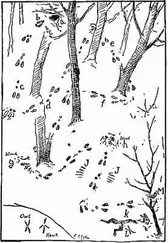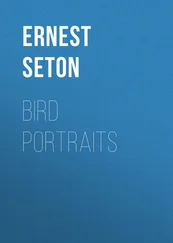Two years went by. The first six months seemed slow; The last eighteen all too rapid. Jim had won his fight, he had more than won, for he was valedictorian of his class. The graduation class was much like any other, as the world could see it, yet it differed, too. When the tall form of the student speaker was left standing alone on the platform, there were not lacking those who said: "Never before has one gone from these halls so laden with good gifts; all, all seems showered on him."
In the audience, bound by closer ties than kinship, was one whose heart was too full for any human utterance. For her it was the crowning of their lives; had she not helped to make it possible?
After the set programme was over, Dr. Belloc handed to Jim an official letter. It was a call to be the pastor of the church in Cedar Mountain. Jim could not see the typed words for his tears and the president took it from him to read aloud. As he listened to the words Jim's thought turned to his mother, and in his heart he prayed: "O, God, grant this: that she may see me now."
Reader of this tale, do you recall the history of Cedar Mountain—how the church grew strong in the newly given strength? Those of many diverse churches came, for they said: "We care not what the vessel's shape that draws the blessed water from the well, so long as it be always there and the water pure and plentiful." Then came the great gold strike in the near hills; and the Preacher was troubled till he learned that it had not touched his mountain. Another railway came, and the town grew big and bigger yet. There were those that feared that their Preacher might leave them, for the needs and calls of the great cities are ever loud and forceful. They said: "Our town is not big enough for such a man; he will surely go to the city." But it was not so; for the city came to the man and mightily grew about him.
Two years after the return to Cedar Mountain, late in the day, designedly late, two horses might have been seen ascending the crooked trail through the cedars that mantled the mountain. Familiar forms were these that rode. They had often taken this path before. The first was the Preacher; the second, the woman that had held his hand. But in her arms was another—the baby form of their first-born. This was their first long ride together since he came, this was the elected trail; and, as the big, red sun went down in the purple and gold of his curtains, Jim took the baby and led the way up the last rough trail, to the little upland, right to the Spirit Rock. The red symbols of the Indians had been recently renewed; in a crevice was a shred of tobacco wrapped in red-dyed grass. It was still a holy place, accounted so by those who knew it.
From the bundle that he carried on his back, Jim took a handful of firewood, a canteen of water, and a church baptismal bowl. He filled the bowl and set it on the lowest ledge of the Spirit Rock. Before the rock he lighted a little fire and, when it blazed, he dropped into the flames the tobacco from the crevice. "That is what they wished done with it," he said in reverence. When the thread of smoke went up nearly straight into the sky—an emblem of true prayer that has ever been—he kneeled, and Belle beside him with the little one kneeled, and he prayed to the God of the Mountain for continued help and guidance and returned thanks for the little one whom they had brought that day to consecrate to Him.
Jim wished it. Belle willed it. His mother, he knew, would have had it so. There seemed no better place than this, the holiest place his heart had ever known. There was no better time than this, the evening calm, with all the symbols of His Presence in their glory.
Belle handed the infant to Jim, who sprinkled water on its face, baptizing it in the form of the Church, and then added: "I consecrate thee to God's service, and I name thee William in memory of the friend of my childhood, a man of wayward life, but one who helped to build whatever there is in me of strength, for he never was afraid, and he ever held his simple word as a bond that might not be broken."
THE END




